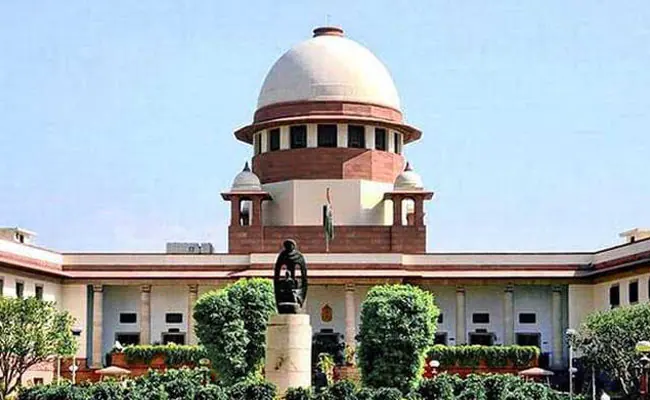The three-judge Bench of the Supreme Court, headed by Chief Justice DY Chandrachud, March 13 referred petitions seeking legal validity of same-sex marriages to a five-judge Constitution Bench. Although the verdict is a long way off yet this is in sharp contrast to the firmness shown by the judiciary in several countries in dealing with the same matter. The apex courts of other countries peremptorily directed the legislatures of respective countries to either frame laws to validate same-sex marriages or the existing ban stood withdrawn. The Indian Supreme Court Bench was expected to have shown more firmness in pronouncing a clear-cut verdict instead of letting a larger Bench take a call. The impression gained is that the order has unnecessarily given a veneer of logicality to the Centre’s regressive stand on the issue. The observation of the Bench that the matter raises questions of “seminal importance” and submissions on the issue involve the interplay between constitutional rights and specific legislative enactments, besides the rights of transgender couples, appears to be an exercise in wordplay and legalese. The reluctance to take the government’s regressive arguments head-on comes out in the ruling: “Having due regard to the broader context of the petitions and the interrelationship between the statutory regime and constitutional rights, we are of the considered view that it will be appropriate if the issues raised are resolved by a Constitution Bench of five judges of this court having due regard to the provisions of Article 145(3) of the Constitution.”
Under Article 145(3), a minimum of five judges should hear cases that involve “a substantial question of law as to the interpretation” of the Constitution.
This is more so when one considers the fact that already 30 countries in the world have allowed same-sex marriages. The highest courts in some of them even set deadlines for their respective legislatures to enact a law validating such marriages or else the ban that had been in force would be null and void. The legislators in some cases preferred not to act at all despite the apex court’s ruling and the law recognising same-sex marriages automatically came into force after the deadline expired.
The matter becomes clear in the light of some of the recent cases. On May 17, 2019, Taiwan became the first Asian country to legalise same-sex marriages. The country’s parliament passed a Bill to this effect. The vote in Taiwan’s Legislative Yuan (the official name of Taiwan’s unicameral parliament) was prompted by a 2017 decision by the country’s highest court, which struck down a law defining marriage as being between a man and woman. The court gave the nation’s legislature until May 24, 2019, to change Taiwan’s marriage laws to accommodate same-sex couples.
On 1 January 2019, Austria joined the vast majority of Western European countries in legally validating same-sex marriage. The country had granted gay and lesbian couples the right to enter into a civil partnership in 2010. But in 2017, Austria’s highest court ruled that these partnerships were inherently discriminatory. It also ruled that unless the country’s legislature passed a law to the contrary, gays and lesbians should be allowed to wed by January 1, 2019. Austria’s legislature did not act to counter the ruling, leading to the first same-sex weddings at the beginning of 2019.
In fact, same-sex marriage in India should be a logical corollary to the decriminalisation of Section 377 (homosexuality) made by the apex court in 2018. The argument put forward by the Centre pleading that same-sex marriage is repugnant to India’s ethos and tradition shows it is captive in the hands of the ruling party’s bigoted ideas about Hindooism.
Hindooism is no prisoner of the past. It is dynamic and known for accommodating all shades of opinions and schools of thought evolving over time. Denying the desires and aspirations of individuals to tie the nuptial knot with same-sex partners is to deny their existence as fellow human-beings.
While opposing the petitions, the government urged the Supreme Court to leave the issue to be decided by Parliament. It has told the top court that a “legislative understanding of marriage in the Indian statutory and personal law regime” refers only to marriage between biological men and women and that any interference “would cause complete havoc.” Any recognised deviation can “occur only before the competent legislature,” the government submitted.
The judiciary in several countries, which have validated same-sex marriages, did not let the legislatures look at the issue with coloured glasses or settle it with a brute majority. It set a timeframe to either bring suitable legislation granting the right or same-sex marriages would become legally valid. In some cases religious inhibitions against such marriages were not entertained.
The Indian government appears to be a stranger to the universal truth that “the old order changeth yielding place to new.”
